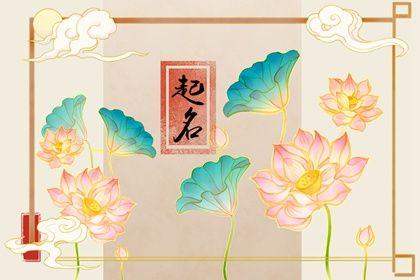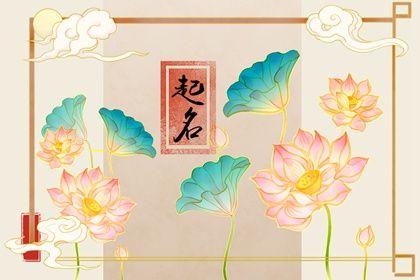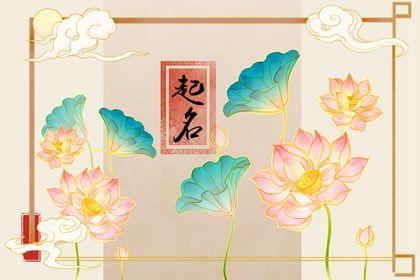如何才能起出令人惊艳的电影名字呢
- 作者: 朱奕南
- 来源: 投稿
- 2024-10-01
一、如何才能起出令人惊艳的电影名字呢
创造令人惊艳的电影名字的技巧
1. 抓住电影的本质:
考虑电影的主题、基调和故事。
寻找一个能捕捉电影核心信息的词语或短语。
2. 使用隐喻和象征:
探索隐喻和象征,以创造一个多层次的名字。
例如,"黑暗骑士"暗示蝙蝠侠的双重身份和与邪恶的斗争。
3. 考虑声音和节奏:
选择一个朗朗上口、容易记住的名字。
考虑单词的音节、韵律和节奏。
4. 保持简洁:一个简短、有力的名字更容易被记住和传播。
避免使用冗长的或难以发音的标题。
5. 探索不同语言:考虑使用其他语言的单词或短语。
这可以增加异国情调或神秘感。
6. 借鉴文学和神话:
从经典文学作品、神话或历史事件中寻找灵感。
例如,"指环王"借鉴了北欧神话。
7. 使用双关语或文字游戏:
创造一个具有多重含义或文字游戏的标题。
例如,"迷失在翻译中"既指语言障碍,也指文化差异。
8. 考虑目标受众:考虑电影的目标受众。
选择一个能吸引他们兴趣和共鸣的名字。
9. 测试你的名字:在朋友、家人或同事中测试你的名字。
征求他们的反馈,看看它是否令人难忘、有吸引力和合适。
10. 保持原创性:避免使用陈词滥调或常见的标题。
努力创造一个独特且令人难忘的名字。
二、如何才能起出令人惊艳的电影名字呢女生
1. 隐喻和象征使用隐喻或象征来暗示电影的主题或情节。
例如:《黑天鹅》(Black Swan)暗示了主角的双重人格和内心的挣扎。
2. 情绪唤起选择能唤起强烈情绪的词语,如爱、恐惧、希望或悲伤。
例如:《爱乐之城》(La La Land)唤起了对爱情和梦想的渴望。
3. 视觉意象使用能创造出鲜明视觉意象的词语,让观众在脑海中形成画面。
例如:《星际穿越》(Interstellar)暗示了浩瀚的太空和时间旅行的可能性。
4. 诗意和抒情借鉴诗歌和抒情手法,创造出具有美感和情感共鸣的名字。
例如:《月亮升起王国》(Moonrise Kingdom)唤起了童年的奇思妙想和冒险精神。
5. 矛盾和反差使用矛盾或反差来引起观众的注意并激发他们的好奇心。
例如:《沉默的羔羊》(The Silence of the Lambs)暗示了主角与食人魔之间的复杂关系。
6. 文化参考借鉴神话、文学或历史事件,为电影名字增添深度和意义。
例如:《奥德赛》(The Odyssey)参考了荷马史诗中奥德修斯的旅程。
7. 简洁有力保持名字简短有力,易于记忆和理解。
例如:《盗梦空间》(Inception)简洁地概括了电影的复杂概念。
8. 独特和原创避免使用陈词滥调或常见的电影名字。
尝试创造一个独特而令人难忘的名字,能与电影本身产生共鸣。
9. 考虑目标受众考虑电影的目标受众,并选择一个能吸引他们的名字。
例如,一部面向年轻观众的电影可能会使用一个更具幻想色彩的名字,而一部面向成年观众的电影可能会使用一个更严肃的名字。
10. 征求反馈在确定电影名字之前,征求朋友、家人或同事的反馈。
他们的意见可以帮助你完善名字,并确保它能引起共鸣。

三、如何才能起出令人惊艳的电影名字呢英语
How to Craft Captivating Movie Titles
1. Keep it Concise and Memorable:
Aim for titles with 2-5 words that are easy to remember and pronounce.
Avoid using generic or overly descriptive titles.
2. Evoke Emotion and Intrigue:
Choose titles that hint at the film's themes, mood, or plot without giving too much away.
Use evocative language that sparks curiosity and imagination.
3. Consider the Genre:
Titles should align with the genre of the film.
For example, action movies often have titles that convey excitement and danger, while comedies tend to be more playful and humorous.
4. Use Symbolism and Metaphor:
Titles can be powerful symbols or metaphors that represent the film's central ideas.
For instance, "The Matrix" suggests a hidden reality, while "The Shawshank Redemption" evokes themes of hope and freedom.
5. Play with Language:
Experiment with puns, alliteration, or other wordplay to create memorable titles.
For example, "The Big Lebowski" is both humorous and intriguing.
6. Reference Cultural Icons:
Titles can draw inspiration from famous works of literature, art, or history.
For instance, "The Godfather" references the classic novel by Mario Puzo.
7. Use Numbers or Symbols:
Numbers or symbols can add a sense of mystery or intrigue to titles.
For example, "2001: A Space Odyssey" suggests a futuristic and enigmatic journey.
8. Consider the Target Audience:
Titles should appeal to the intended audience.
For example, a family-friendly film might have a more lighthearted and accessible title than a horror movie.
9. Test and Refine:
Get feedback from friends, family, or colleagues on potential titles.
Be open to suggestions and make adjustments as needed to ensure the title is both captivating and effective.
10. Be Original and Unique:
Avoid using titles that are too similar to existing films or sound generic.
Strive to create a title that stands out and leaves a lasting impression.
四、如何才能起出令人惊艳的电影名字呢英文
How to Craft Captivating Movie Titles
1. Keep it Concise and Memorable:
Aim for titles with 2-5 words that are easy to remember and roll off the tongue.
Avoid overly long or complex titles that may be difficult to recall.
2. Use Intriguing and Evocative Language:
Choose words that create a sense of mystery, curiosity, or emotional resonance.
Consider using metaphors, similes, or other literary devices to add depth and intrigue.
3. Reflect the Film's Genre and Tone:
The title should hint at the film's genre (e.g., "The Godfather" for a crime drama) and set the tone (e.g., "The Shawshank Redemption" for a hopeful prison drama).
4. Consider the Target Audience:
Think about the demographics and interests of your target audience.
Choose a title that will appeal to their sensibilities and make them want to see the film.
5. Use Alliteration or Assonance:
Incorporating alliteration (repetition of consonant sounds) or assonance (repetition of vowel sounds) can create a catchy and memorable title.
For example: "The Dark Knight," "The Lord of the Rings"
6. Explore Symbolism and Metaphor:
Use titles that symbolize the film's themes or characters.
For example: "The Matrix" (a virtual reality world), "The Silence of the Lambs" (a serial killer's obsession with silence)
7. Reference Cultural or Historical Events:
Titles that evoke historical events or cultural references can create a sense of familiarity and intrigue.
For example: "12 Years a Slave," "The Imitation Game"
8. Use Numbers or Dates:
Numbers or dates can add a sense of urgency or specificity to a title.
For example: "2001: A Space Odyssey," "1984"
9. Consider the Film's Poster:
The title should complement the film's poster and create a cohesive visual identity.
Think about how the title will look on the poster and how it will impact the overall marketing campaign.
10. Test and Refine:
Once you have a few title options, test them out with potential viewers or industry professionals.
Get feedback on their impressions and make adjustments as needed to ensure the title is as captivating as possible.




